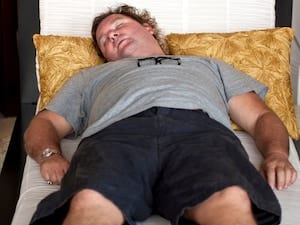
WEDNESDAY, Oct. 3, 2018 (HealthDay News) — Getting too little or too much sleep can affect stroke risk, depending on a man’s race, researchers say.
“These results suggest that short and long sleep duration may have different consequences for people depending on race and sex,” said study author Virginia Howard, from the University of Alabama at Birmingham.
Short sleep was defined as six hours or less; long sleep was nine or more hours.
The researchers looked at nearly 17,000 white and black Americans, average age 64, with no history of stroke. During an average follow-up of six years, a total of 460 strokes occurred among 172 blacks and 288 whites. Blacks accounted for 37 percent of the participants.
Black men who slept less than six hours a night were 80 percent less likely to have a stroke than those who were average sleepers.
White men who slept nine or more hours a night had a 70 percent higher risk of stroke than those who were average sleepers.
Amount of sleep had no effect on stroke risk for black or white women, according to the study. The results were published Oct. 3 in the journal Neurology.
In their analysis, the researchers adjusted for other stroke risk factors such as smoking, diabetes and heart disease. However, the study did not prove a direct cause-and-effect relationship.
“More research is needed to determine the mechanisms behind these relationships,” Howard said in a journal news release. “In the meantime, this emphasizes how important it is to better monitor and control cardiovascular risk factors in middle-aged to older people who have long sleep periods.”
More information
The U.S. National Heart, Lung, and Blood Institute has more on stroke.
